|
Young Frankenstein [1975]

The Last Man on Earth

Monty Python: The Movies (Box Set)

The Untouchables - Season Review 2003/2004

The Lord of the Rings Trilogy (Extended Edition Box Set)

To top it all off, the extended editions offer four discs per film: two for the longer movie, plus four commentary tracks and stupendous DTS 6.1 ES sound; and two for the bonus material, which covers just about everything from script creation to special effects. The argument was that fans would need both versions because the bonus material is completely different, but the features on the theatrical releases are so vastly inferior that the only reason a fan would need them would be if they wanted to watch the shorter versions they saw in theaters (the last of which, The Return of the King, merely won 12 Oscars). The LOTRextended editions without exception have set the DVD standard by providing a richer film experience that pulls the three films together and further embraces Tolkien's world, a reference-quality home theater experience, and generous, intelligent, and engrossing bonus features. —David Horiuchi Arrested Development: Season 1

The Day Of The Triffids

Operation Good Guys - Complete Series 1 To 3

Serenity [2005] (REGION 1) (NTSC)

Arrested Development - Season 2

The Simpsons - Season 7

Broadcast in 1995, season seven features several signature episodes, including Part II of "Who Shot Mr. Burns," "Bart Sells His Soul," and "Two Bad Neighbors" where former President George Herbert Walker Bush moves into the neighborhood (an episode gamely playing on the former President’s open dislike for the show). One of The Simpsons’s most definitive episodes, "Treehouse of Horror VI" famously broke the third wall by using the then-groundbreaking CGI technology to render Homer first in a 3-D world, then in real life, (despite the evolution in his form, he naturally ends up in an erotic cake shop). As the producers openly note on the commentary, it was a big deal at the time, and super expensive, which is why they could only do a few minutes of footage in CGI (some fans will particularly enjoy the revealing commentary on this one, as the producers explain the many visual puns and math jokes appearing in the background of the 3-D world). It’s a great example of how The Simpsons continued to play with its visual style and take creative risks years into its run. In fact, one of the best episodes on this collection, "The Simpsons 138th Episode Spectacular" proves just how far the look and style of the show really came during that time. Hosted by actor Troy McClure (voiced by the late comic great Phil Hartman), it presents never-before-seen outtakes and original footage from the show’s debut days on The Tracey Ullman Show, while taking a few self-referential digs at show creators Matt Groening, James Brooks, and Sam Simon. Other gems include "Homerpalooza" where Homer thanks guests The Smashing Pumpkins for their gloomy music because it has made his kids "stop wishing for a future I can’t possibly provide," and "Bart the Fink" where Bart inadvertently gets Krusty the Klown busted for tax "avoision." Along with the 25 episodes there are extensive commentaries, featurettes, and deleted scenes all of which add immense value to the set and will give die-hard fans another excuse to spend more hours in front of the TV. It’s another benchmark collection from a show that, up to this point, doesn’t seem to know its own limits. —Dan Vancini The Mitchell And Webb Situation

Serenity

Perhaps that explains its modest box office performance back in 2005. What it fails to reflect, however, is that this is one of the most energetic, downright enjoyable sci-fi flicks in some time. Not for nothing did many rate it higher than the Star Warsmovie that appeared in the same year. It follows renegade captain Mal Reynolds and his quirkily assembled crew, as they work on the outskirts of space, trying to keep out of the way of the governing Alliance. That plan quickly changes when they take on a couple of passengers who have attracted the attention of said Alliance, and thus the scene is set for an action-packed, cleverly written movie that deserves many of the plaudits that have rightly been thrust in its direction. What's more, Serenityworks whether you've seen the TV series that precedes it or not. Clearly fans of the Fireflyshow will be in their element, but even the casual viewer will find an immense amount to enjoy. The only real problem is that given the film's box office returns, further adventures of Reynolds and his crew look unlikely. Unless Serenityturns into a major hit on DVD, that is. It's well worth playing your part in making that happen.—Simon Brew Twilight Zone - Series 3 (Black & White)

Family Guy - Season 4

Season four has plenty of evidence for why the show shouldn’t be overlooked. Picking up the story of the family Griffin, this time more of the background characters are allowed into the limelight, and that’s really to the programme’s benefit. That’s not to say the main players are out of sight, and the quite wonderful baby Stewie has plenty of air time, but there’s a real ensemble feel. The rapid-fire, razor-sharp wit and writing quality that’s become the trademark of the show is present and correct too, and the quality of the episodes on offer put season four up there as not quite the finest series of Family Guy to date, but it nonetheless runs things very close indeed. If you’ve not taken the plunge yet, you’ve really, really been missing out… —Jon Foster Underworld: Evolution [2006]

V for Vendetta [2006]

Based on the popular graphic novel by Alan Moore, V For Vendetta's screenplay was written by the Wachowski Brothers (of The Matrixfame) and directed by their protégé James McTeigue. Controversy and criticism followed the film since its inception, from the hyper-stylized use of anarchistic terrorism to overthrow a corrupt government and the blatant jabs at the current US political arena, to graphic novel fans complaining about the reconstruction of Alan Moore's original vision (Moore himself has dismissed the film). Many are valid critiques and opinions, but there's no hiding the message the film is trying to express: Radical and drastic events often need to occur in order to shake people out of their state of indifference in order to bring about real change. Unfortunately, the movie only offers a means with no ends, and those looking for answers may find the film stylish, but a bit empty. —Rob Bracco The Simpsons - Season 8

Garth Marenghi's Darkplace

Family Guy Season 5

The highlights of Family Guy for many, of course, are Stewie the ingenious baby and the family’s dog Brian (arguably the sanest one of the lot), and both are in fine form here. And while this series again allows many of the supporting characters a space in the limelight, it’s Stewie and Brian who remain responsible for some of Family Guy’s funniest moments. Bluntly, there are plenty of them. Still, there’s little getting away from the fact that season five lacks the spark that energised the superb first two or three series, and as a result, there are episodes here that are good where they were once great. There are, still, plenty of examples of the old magic, and it’s still primarily a real pleasure that’s pretty much guaranteed to raise laughs from those who don’t mind their entertainment with a bit of edge. But it’ll be interesting to see where Family Guy goes from here, and whether its real glory days are permanently consigned to the past. —Jon Foster Peep Show Series 3

Wii Play (includes Wiimote controller) (Wii)

If you want as gentle an introduction as possible to the world of Wii then this user-friendly compilation of mini-games is just the thing for you, with a collection of games that are as easy to play as they are fun. The lowdown: It might be easy to use but the Wii is still a pretty unusual beast and a bit of a culture shock from the overly complex controllers of other consoles. This compilation of mini-games aims to ease you in gently with simple to play games that only need the Wii Remote to enjoy. These include games of table tennis, air hockey (or Laser Hockey as the game would have it) and an updated of NES classic Duck Hunt. There's also Wii Billiards, a fishing sim and a number of games which use your customised Mii Channel character, including Wii Pose and the Where's Wally style Find Mii. Since many of these games have a multiplayer mode the game also comes bundled with an extra Remote (but not a nunchuck), which usually sells for £29.99 separately. Most exciting moment: Although all of the games are fun the best one is probably the Duck Hunt update (which also has you shooting UFOs and other non-avian enemies). Perhaps what's most exciting about it is that it proves how good other light gun franchises, such as Virtua Cop and Time Crisis would be on the Wii. Since you ask: Many of the mini-games included with Wii Play, such as Duck Hunt and Table Tennis, were first seen as technical demos at the E3 trade conference in May 2006, when the Wii was first revealed in playable form. The bottom line: The beginner's guide to Wii, with a handy extra controller. - HARRISON DENT Bitterness the Star

A Snow Capped Romance

Rest Inside the Flames

This Darkened Heart

Hallucinating

Frail Words Collapse

Sounding the Seventh Trumpet

Waking the Fallen

The Human Equation

1

Revolver

Let It Be...Naked

The tracklisting on this version of Let It Bediffers slightly from the original—there's no "Maggie Mae" or "Dig It", while "Don't Let Me Down" has been added. The rest of the songs, shorn of Spector's decorative flourishes, confirm that although the Beatles were having occasional difficulty speaking to each other during these sessions, there was no problem about playing together. The only two minor quibbles are that "The Long and Winding Road" is still McCartney at his most saccharine, and that any Beatles version of "Across the Universe" is never going to hold a candle to that by Laibach. —Andrew Mueller You Come & Go Like a Pop Song

Paranoid

The Illustrated Man (Flamingo Modern Classics)

The Zombie Survival Guide: Complete Protection from the Living Dead

World War Z

Notes from a Big Country

They Live [1989]

The City and the Stars (Millennium SF Masterworks S)

The Coral

Brass Eye [1997]

Brass Eyesatirises a media far too interested in generating dramatic heat and urgency for its own sake than in shedding light on serious issues. Morris mimics perfectly the house style of programmes such as Newsnightand Crimewatch, with their spurious props and love of gimmickry. Meanwhile his presenter—an uncanny composite of Jeremy Paxman, Michael Buerk and Richard Madeley among others—delivers absurd items about man-fighting weasels in the East End and Lear-esque lines such as "the twisted brain wrong of a one-off man mental" with preposterously solemn authority. Much as the media itself is wont to do, each programme works itself up into a ridiculous fever of moral panic. Most telling is the "drugs" episode, in which, as ever, real-life celebrities, including Jimmy Greaves and Sir Bernard Ingham, are persuaded to lend their name to a campaign against a new drug from Eastern Europe entitled Cake. The satirist's aim here isn't to trivialise concern about drugs but to point up the media's lack of attention to content. A response to the ill-conceived News of the Worldwitch-hunt, in the wake of the Sarah Payne affair, the 2001 "paedophilia" special was the most supremely controversial of the series. It followed the usual formula—duping celebs such as Phil Collins into endorsing a campaign entitled "Nonce Sense", urging parents to send their children to football stadiums for the night for their own safety and mooting the possibility of "roboplegic" paedophiles—and prompted the sort of hysterical and predictable Pavlovian response from the media that Brass Eyelampoons so tellingly. On the DVD:Brass Eyeon DVD includes brief outtakes, such as "David Jatt" interviewing celebrities about breeding hippos for domestic purposes, an hilarious exchange with Jeffrey Archer's PA ("He's a very wicked little man") as well as trailers for the paedophilia special.—David Stubbs Shake Hands with the Devil: The Failure of Humanity in Rwanda

The Selfish Gene

The God Delusion

Winds of Creation

Images and Words

Awake

A Change of Seasons

Falling Into Infinity

Live Scenes from New York

Live at Budokan

Adobe PhotoShop CS for Photographers: Professional Image Editor's Guide to the Creative Use of Photoshop for the Mac and PC

Six Not-so-easy Pieces: Einstein's Relativity, Symmetry and Space-time (Penguin Press Science S.)

Colossus: Bletchley Park's Greatest Secret

Cobweb

The World of Karl Pilkington

Worship and Tribute

Gone Forever

Dookie

The Neutronium Alchemist (Night's Dawn Trilogy)

The Naked God (Night's Dawn Trilogy)

The Reality Dysfunction (Night's Dawn Trilogy)

It is the late 26th century and humanity's thriving culture spans 200 planets. The usual squabbles and disagreements continue, but generally everyone gets along and lives well as humanity's outward expansion continues apace. On newly colonized Lalonde, though, a strange force emerges from the jungle, lobotomizing people and turning them into super-powered soldiers. At the same time, the story of Joshua Calvert emerges. He's the young captain of a trading ship, who innocently travels to Lalonde and becomes embroiled in the mysteries there. Both threads have plenty of action and exotic scenery. Peter Hamilton's descriptive prose, particularly in action sequences, is breathtaking (and scientifically accurate), creating a dramatic backdrop for a story where the stakes keep getting higher, the villains keep growing more evil and the heroes keep surviving—but only just. Space-opera fans will enjoy this deftly written and engaging novel. Those who feel they don't like the genre might give this example a try to see just how unhacky, ungrinding, sweet-smelling, and robust it can be. —Brooks Peck The Neon Handshake

The Gospel of the Flying Spaghetti Monster
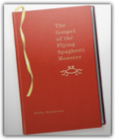
A Long Way Down

Shatterproof is not a Challenge

If there's any criticism here, it's that Hundred Reasons appear to have found a successful formula and stubbornly stuck to it: "Pop" sounds uncomfortably like a band ripping off themselves, and even a pair of ballads, "Still Be Here" and "Makeshift", appear to be tacked on just because that's what well-rounded rock-albums are supposed to do. In future, a touch more variety would prove a real boon. But in short bursts, Shatterproof Is Not a Challengeremains a bracing example of sturdy, cathartic punk-rock, and we very much suspect that's exactly what Hundred Reasons were after all along. -– Louis Pattison Those Barren Leaves

Revolution Revolucion

Confession

Whoracle

The Tokyo Showdown: Live in Japan 2000

Reroute to Remain

Clayman

Lunar Strain

Colony

Come Clarity [+DVD]

Smile from the Streets You Hold

Niandra Lades and Usually Just a T-Shirt

Automatic Writing

Dc Ep

Lennon Legend

An Evening With John Petrucci and Jordan Rudess

Alive Or Just Breathing

The End of Heartache

Killswitch Engage
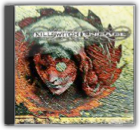
Beyond Band of Brothers: The War Memoirs of Major Dick Winters

The Village Green Preservation Society

The Ultimate Collection

The first disc of the two-CD The Ultimate Collectionbegins with their third single and first No. 1, the insistent "You Really Got Me", then races through the glory years with the absurdly infectious likes of "Sunny Afternoon", "Waterloo Sunset", "Lola" and "Apeman". Dave's two hits are included, too, and the disc ends with "Come Dancing" and other selections from The Kinks' early-80s comeback. Disc Two includes songs that were hits for others ("David Watts" and "Stop Your Sobbing"), various B-sides and other rarities, including "God's Children", from the soundtrack of Percy, a movie about a fellow seeking the original owner of his recently transplanted penis. The Ultimate Collectionis an excellent addition to the Kinks's cannon. —Dominic Wills Arthur Or the Decline and Fall of the British Empire

Man Who Knew Too Much: Alan Turing and the Invention of the Computer

Surely You're Joking, Mr.Feynman!: Adventures of a Curious Character

Up the Bracket

Certainly, though, there's some fine pedigree to Up the Bracket. With the Clash's Mick Jones at the production helm, gravelly tracks such as "Horror Show" and "The Boy Looked at Johnny" rattle along like phlegmy first-gen punk classics. But like the Strokes, The Libertines manage to imbue snotty garage-rock with a sort of wistful romanticism—an effect that adds genuine soul to their raucous clatter. Although there's no sign of "What a Waster", the snotty single with which the group made their name, there's no shortage of excellent tunes here: "Boys in the Band" is an affectionate hymn to the groupie, with frontmen Pete Doherty and Carl Barat hollering "And they all get 'em out / For the boys in the band". "I Get Along" proves that behind their shambolic veneer these boys have an eye for a tight, nervy but undeniably classic songwriting style that pricks memories of the Jam or the Buzzcocks. Very, very promising. —Louis Pattison The Libertines

I Get Along

Liquid Tension Experiment 2

Liquid Tension Experiment

Burn My Eyes

The More Things Change

Supercharger

Hellalive

Through the Ashes of Empires

Thankfully, this situation changes. "Days Turn Blue to Gray" features what ought to be a crushing riff that's instead hushed and made to back a pastoral interlude. "All Falls Down" veers from crunching metal to melancholy folk, singer Rob Flynn weirdly employing all the seductive softness of INXS's "Need You Tonight" while threatening strangulation and worse. The tough talkover of "Wipe the Tears" and the sub-classical guitar-fest of "Descend the Shades of Night" bring the album to a glorious conclusion. Machine Head still burn brightly, and Flynn, in discussing the birth-parents who discarded him, takes his rage to new levels. You'd think he'd be over it by now. Be glad he isn't. —Dominic Wills Random 1-8 [Japanese Import]

Absolution

Throughout, Matt Bellamy adds classical grace with his tinkling, rolling grand piano, all the while moaning and shrieking out his fear of decay, destruction and death, like a traumatised Gene Pitney. Indeed, aside from their classical leanings and clear kinship with the prog-rock likes of Queen and Rush (there are some outbreaks of metal here), Muse often draw on classic pop, employing lush 1960s-style arrangements. With "Blackout" they go even further, daring to conjure Bacharach's "Magic Moments". If there's a weakness here, it's that the songwriting remains inconsistent, but this is usually covered up by musicianship and studio wizardry that leave Coldplay languishing in Muse's dust. —Dominic Wills Showbiz

The Principia: Mathematical Principles of Natural Philosophy

May Contain Nuts

SpongeBob Squarepants: Original Theme Highlights

Buffy the Vampire Slayer: Once More with Feeling

Cowboys from Hell

Reinventing Hell

Dark Side of the Moon

Platinum Collection: Greatest

Out in La

One Hot Minute

Freaky Styley

Mother's Milk

Red Hot Chili Peppers
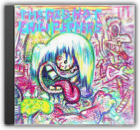
The Uplift Mofo Party Plan

Live in Hyde Park

Heralded by a tense intro, the funky, fists-in-the-air sound of "Can't Stop" cutting through the ether is one of those moments that make live albums so compelling for those who were there andthose who weren't. The Peppers go on to play through 2 CDs' worth of favourites from By the Wayand Californicationplus newer material such as "Fortune Faded", "Rolling Sly Stone" and "Leverage of Space". It's difficult to pick highlights, as the level of musicianship from the four was high as ever but unexpected, quirky numbers such as John and Flea's rendition of Donna Summer's "I Feel Love" stand out as memorable euphoric moments. Sadly, the only pre-Californicationsongs were old favourites "Under the Bridge" and "Give it Away", both sounding fresh despite being 13 years old. Live in Hyde Parkis definitely a worthy addition to any record collection. It's amazing that a band in their third decade of success can release theirfull debut live album, but the Chili Peppers prove that they've still got it (now, more than ever) and will be around for a very long time to come. —David Trueman Stadium Arcadium

The title track, "Desecration Smile," and "She Looks To Me" finds them venturing further into laid back pop ballad territory, while the tricky rhythms of "Dani California,""Charlie," and "So Much I" eventually kick into familiar top gear on the pop-savvy "Tell Me Baby" and hip-hop seasoned "Storm in a Teacup." It's not that there's a paucity of musical adventure here ("If" and "Animal Bar" finds them wafting into Floydish neo-psychedelia while "Make You Feel Better" seems to channel no less than Joe Jackson) but that it's delivered with a subtlety—and dare we say it?—tasteful musical restraint that's a stark contrast to the band's early, overly overt nature. There's perhaps too much mid-tempo simmering and reflection going on; like most double-albums it could be focused into a much more compelling single disc. But that seems largely beside the Peppers' hooks-over-histrionics point here: an unlikely record to kick back to, and one that both challenges assumptions and eases the band into middle age with an oft languorous, if undeniably savory groove. —Jerry McCulley Somber Eyes to the Sky

The Art of Balance

The War Within
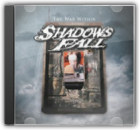
Fallout from the War

The Hyperion Omnibus: "Hyperion", "The Fall of Hyperion" (Gollancz SF S.)

Height of Callousness
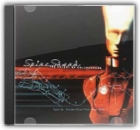
Self Destructive Pattern

From here on, it becomes ever more aggressive, with Tommy Decker's occasional thrilling effects buried beneath the noise as singer Jonny Santos's over-riding sense of bitterness and paranoia takes over. This is the album's main problem. Spineshank have it in them to produce serious-minded melodic metal to rival the best of Alice in Chains yet are held back by Santos's tediously blinkered worldview. On Planet Santos everyone is out trick, blame, sedate or ruin him and he's thoroughly peeved about it, so peeved that he allows his lyrics to become a monotonous and graceless diatribe, meaningless to anyone outside his immediate circle. Let's hope it was cathartic, for Spineshank have huge potential. —Dominic Wills Snow Crash

Of Love and Lunacy
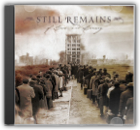
How I Conquered Your Planet

Toxicity

Steal This Album

California Clam Chowder [Us Import]

Ascendancy

The Oncoming Storm

Infinite Jest

Serenity

My Generation [Deluxe Edition]

Who's Next: Deluxe Edition

Six tracks from the album's original but abandoned New York sessions flesh out the familiar material, with previously unreleased outtakes of "Getting in Tune" and a revealing, early arrangement of "Won't Get Fooled Again" warranting special note. The second disc documents one of Lifehouse's most quixotic elements with the first-time release of one of the series of concerts staged at London's Young Vic theatre during the project's gestation—events during which band and audience would somehow mystically become one. Core tracks from the project are interspersed with typical hard-rocking Who fare of the time, resulting in a show whose focus and dynamics belied something very different from the arena-rock clichés that would eventually overwhelm them. —Jerry McCulley Tommy: Deluxe Edition

Endless Wire: Special Edition

Live at Leeds: 25th Anniversary Edition

How to Survive a Robot Uprising

|


Tom Phippen
Collection Total:
2065 Items
2065 Items
Last Updated:
Apr 19, 2014
Apr 19, 2014

 Made with Delicious Library
Made with Delicious Library